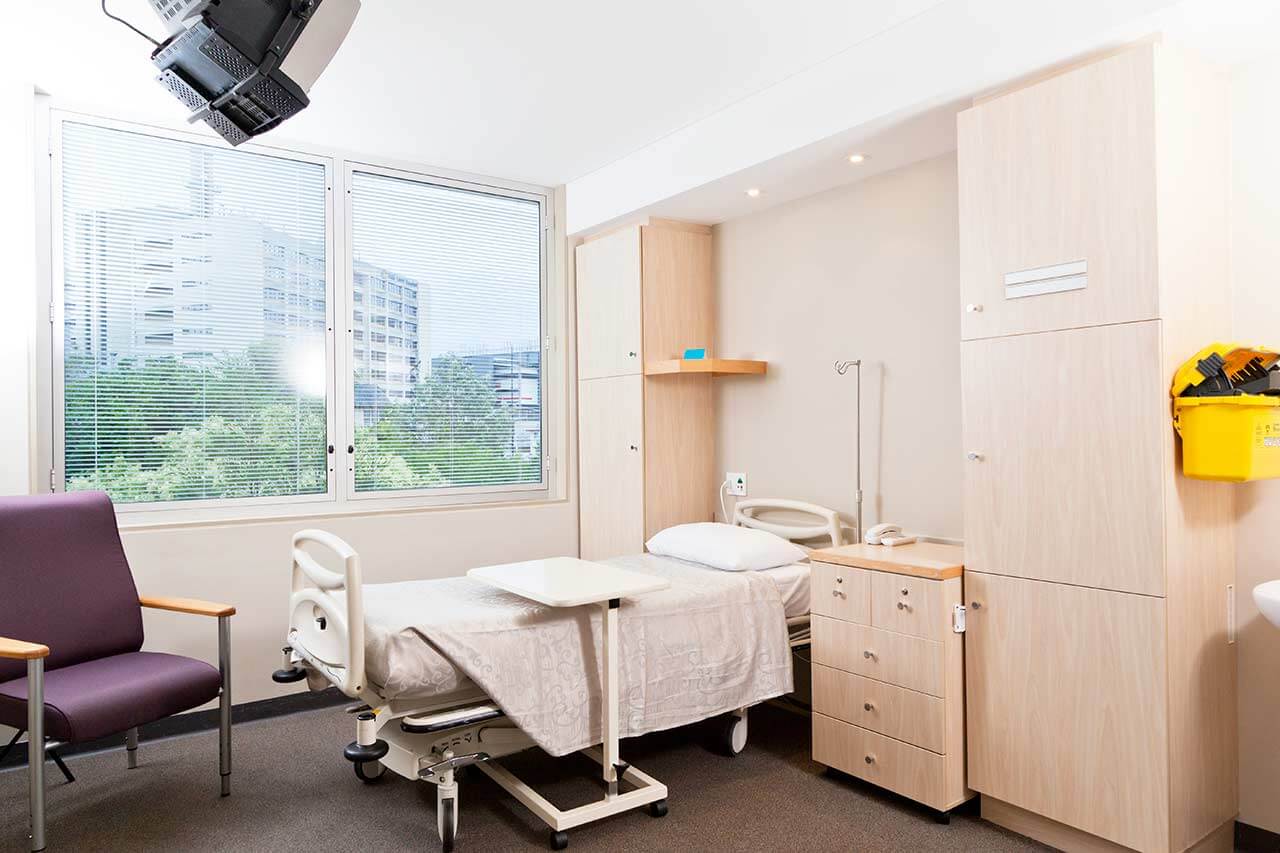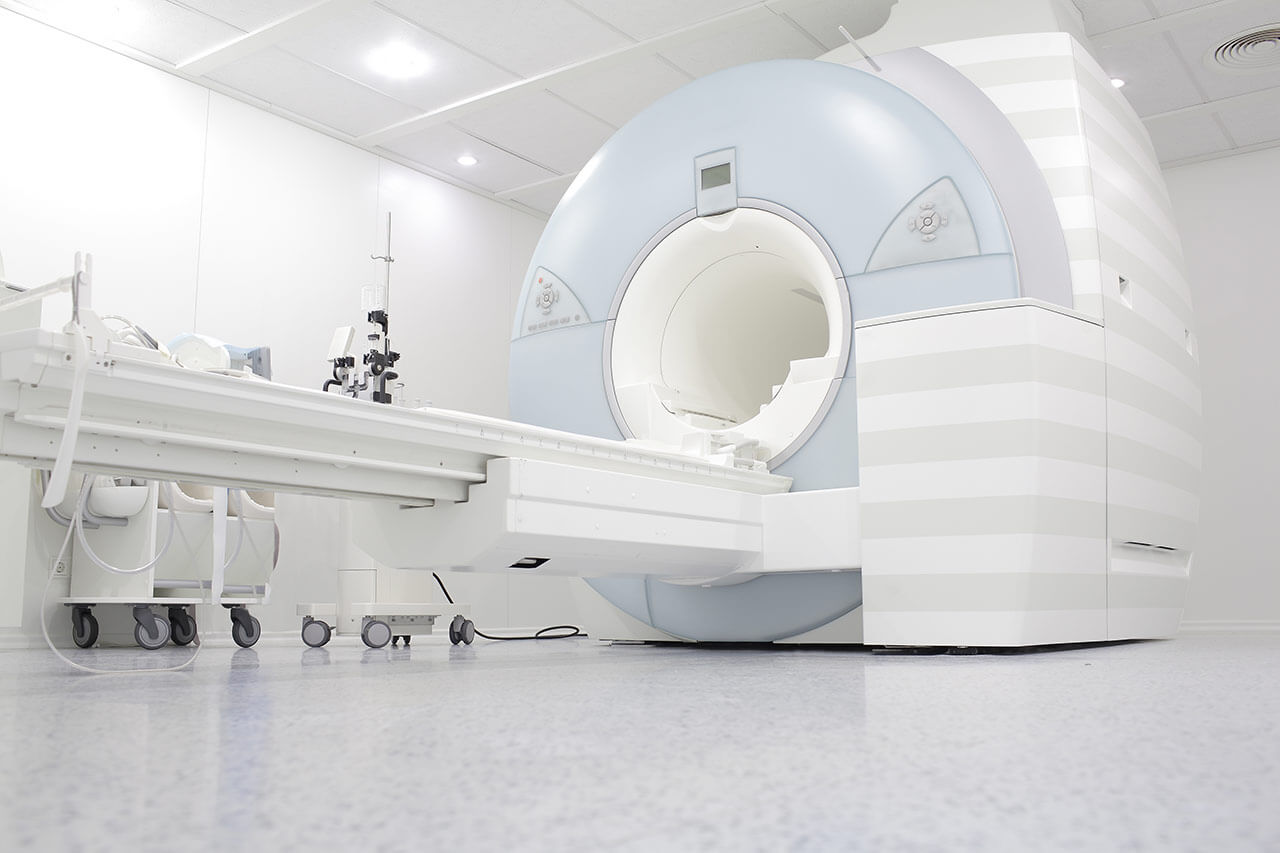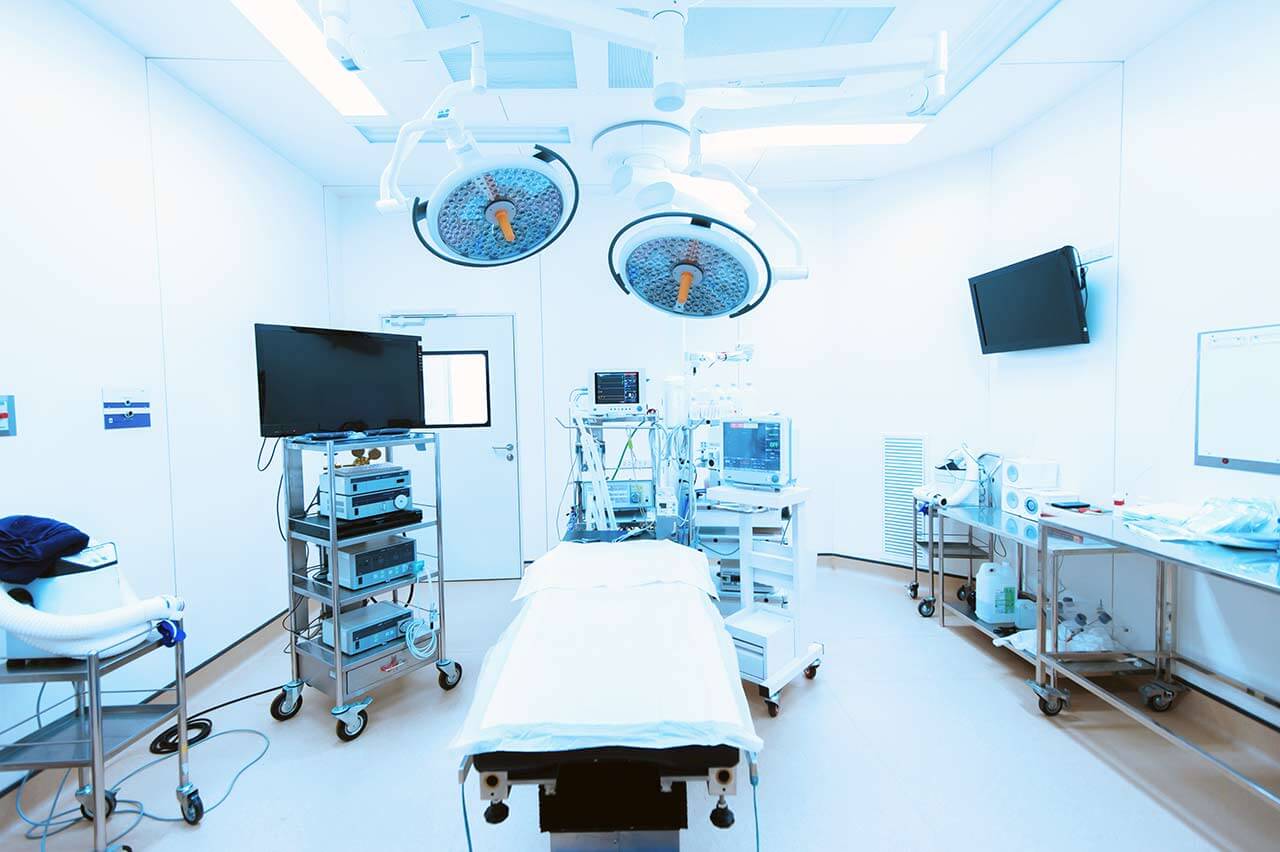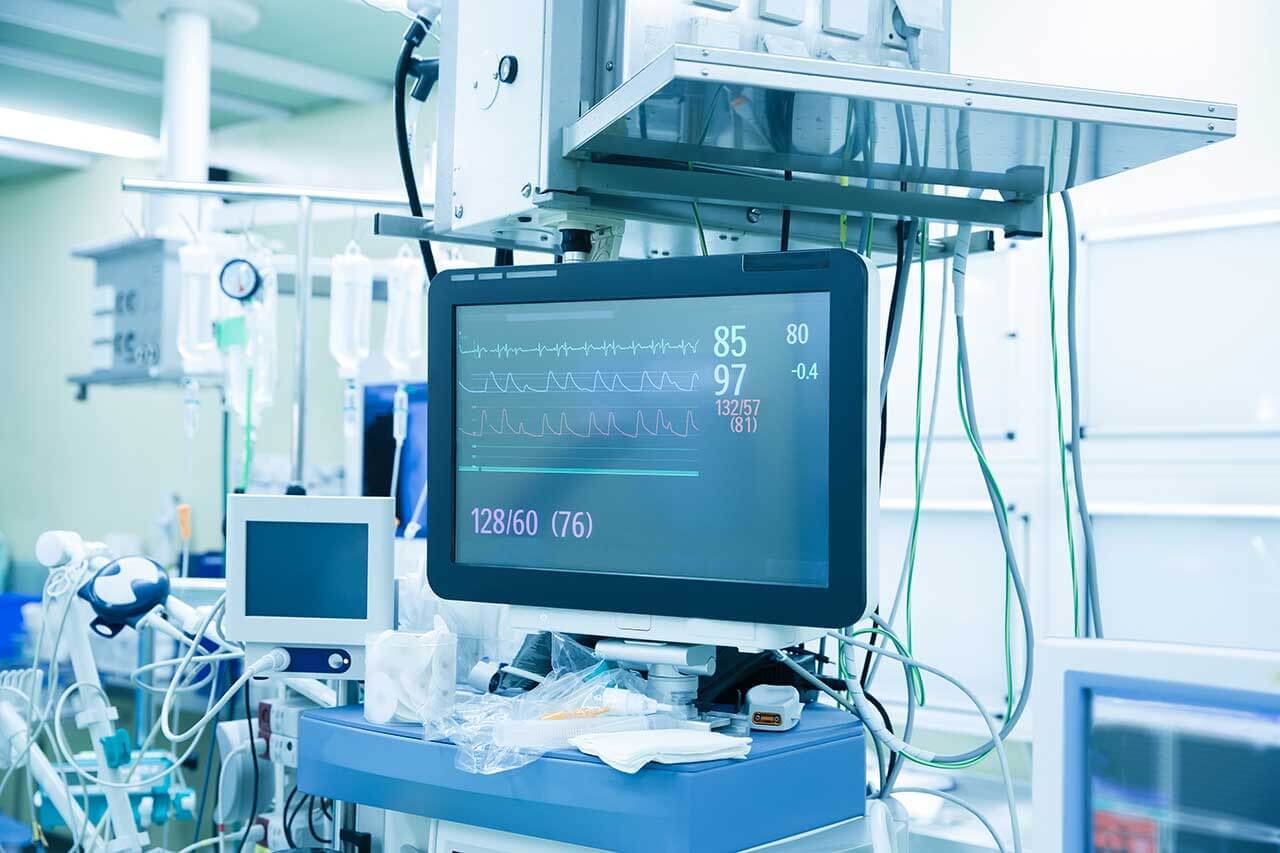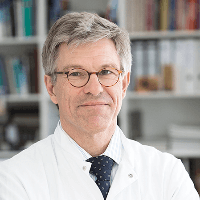
The program includes:
- Initial presentation in the clinic
- clinical history taking
- physical examination
- review of medical records
- laboratory tests:
- complete blood count
- general urine analysis
- biochemical analysis of blood
- TSH-basal, fT3, fT4
- tumor markers
- indicators of inflammation (CRP, ESR)
- indicators blood coagulation
- abdominal ultrasound
- CT/MRI abdomen
- analysis on the hp (helicobacter pylori)
- endoscopic bougienage and stent overlay
- consultation of related specialists
- symptomatic specific treatment
- the cost of essential medicines and materials
- nursing services
- control examinations
- full hospital accommodation
- developing of further guidance
Required documents
- Medical records
- MRI/CT scan (not older than 3 months)
- Biopsy results (if available)
Service
You may also book:
 BookingHealth Price from:
BookingHealth Price from:
About the department
The Department of Gastroenterology, Hepatology, Endocrinology and Infectology at the University Hospital Rechts der Isar Munich offers prevention, diagnostics and treatment of diseases of the gastrointestinal tract, liver, endocrine glands and infectious pathologies. The department's specialists have unique experience in the treatment of malignant diseases of the digestive system. In addition, the department's gastroenterologists successfully perform the full range of modern endoscopic procedures for diagnostic and therapeutic purposes. The department is annually visited by about 15,000 outpatients and more than 5,000 inpatients. The patients' health is in the safe hands of a large medical team consisting of 60 specialized doctors and more than 190 nursing and administrative staff. The specialists of the medical facility strive to provide each patient with the most effective treatment using the very latest and the most reliable therapeutic methods. The Head Physician of the department is Prof. Dr. med. Roland Schmid.
The department's gastroenterologists carry out comprehensive diagnostics and treatment of benign and malignant gastrointestinal pathologies. As a rule, the patients with diseases of this spectrum receive medical care on an outpatient basis. The most common benign pathologies treated in the department include gastritis, gastroesophageal reflux disease, eosinophilic esophagitis, intestinal and esophageal motility disorders, celiac disease and others. At the same time, doctors pay due attention to the patients with suspected cancer of the digestive system. The specialists in this field conduct the full range of diagnostic tests to confirm or exclude cancer diagnosis, prescribe drug therapy for malignant tumors, and also carry out control examinations to assess the results of the therapeutic measures performed. Doctors cooperate closely with oncologists, radiation therapists, surgeons, thereby guaranteeing patients comprehensive medical care.
An equally important area of work of the department's doctors is the diagnostics and treatment of liver diseases. The focus of doctors specializing in these pathologies is on the patients with chronic viral and inflammatory liver diseases, metabolic and autoimmune pathologies of the liver and biliary tract, as well as cirrhosis. In most cases, drug therapy is indicated to such patients. It is prescribed based on the specific clinical case.
The department is quite often visited by patients with endocrine disorders: pathologies of the thyroid and parathyroid glands, adrenal glands, pituitary gland and hypothalamus, testicles and ovaries. In addition, the team of the department's doctors specializes in the treatment of diabetes mellitus (types 1 and 2, gestational diabetes mellitus), hyperlipidemia, bone metabolism disorders and neuroendocrine tumors. The specialists of the medical facility carry out drug therapy of the above mentioned pathologies, and if necessary, endocrine surgeons are involved in the therapeutic process. The patients with diabetes mellitus receive pharmacotherapy with hypoglycemic drugs, insulin therapy, including with the use of an insulin pump.
The range of services provided in the department is complemented by therapy for infectious diseases, including HIV, sexually transmitted diseases, echinococcosis, hepatitis B and C, tropical infections, and other infectious diseases. The department conducts all laboratory tests required for making an accurate diagnosis, after which doctors prescribe the optimal course of treatment.
The department's main clinical focuses include:
- Gastroenterology: diagnostics, conservative therapy and prevention of gastrointestinal diseases, including oncopathology
- Hepatology: diagnostics and treatment of chronic viral hepatitis, metabolic and autoimmune diseases of the liver and biliary tract, cirrhosis
- Endocrinology: diagnostics and treatment of diseases of the pituitary gland, adrenal glands, thyroid gland, parathyroid glands, gonads (ovaries and testicles), as well as lipid metabolism disorders, bone metabolism disorders, rare neuroendocrine tumors, type 1 and 2 diabetes mellitus, gestational diabetes mellitus, pancreatic diseases, metabolic syndrome
- Infectology: diagnostics and treatment of patients with diseases caused by bacterial and viral infections, parasitic agents, fungi, HIV infection and other immune dysfunctions
- Internal intensive care: focuses on the treatment of multiple organ dysfunction syndrome, especially in gastroenterology, hepatology and infectious diseases (sepsis)
- Other medical services
Curriculum vitae
University Education and Professional Career
- Since 2002 C4 Professor and Head of the Department of Gastroenterology, Hepatology, Endocrinology and Infectology at the University Hospital Rechts der Isar Munich.
- 1997 - 2002 Managing Senior Physician, Department of Internal Medicine I, University Hospital Ulm.
- 1993 - 1997 Assistant Physician, Department of Internal Medicine I, University Hospital Ulm.
- 1986 - 1989 Research Fellow, Department of Gastroenterology, Hepatology, Endocrinology and Infectology at the University Hospital Rechts der Isar Munich.
- 2001 Extraordinary Professorship
- 2000 University Lecturer, Department of Internal Medicine I.
- 1996 Board certification in Internal Medicine.
- 1995 PD, Faculty of Medicine, University of Ulm.
- 1995 Habilitation in Internal Medicine, Faculty of Medicine, University of Ulm. Subject: "Purification, cloning and characterization of the transcription NF-KB factor".
- 1987 Doctorate, University of Ulm. Subject: "The influence of glucose, insulin and opiates on the neuroendocrine regulation of the stomach" (with honors).
- 1979 - 1985 Study of Medicine at the University of Ulm.
Awards and Honors
- 2008 Heinz Maier-Leibnitz Medal, Technical University of Munich.
- 2005 Editorial Board, World Journal of Gastroenterology.
- 2004 Editorial Board, DIGESTION.
- 2002 Council of the International Association of Pancreatology.
- 2002 Editorial Board, Gastroenterology.
- 2001 Merckle Research Award, University of Ulm.
- 1998 Ludwig Heilmeyer Medal (silver), German Society for Advancement in Internal Medicine, Cologne.
- 1986 Wolf Boas Prize, German Society for Digestive and Metabolic Diseases, Salzburg.
Memberships in Professional Societies
- German Society of Internal Medicine.
- German Society for Advances in Internal Medicine.
- German Society of Gastroenterology, Digestive and Metabolic Diseases.
- Bavarian State Medical Association.
- German Cancer Society.
- German Society for Immunology.
- Working Group on Gastroenterology.
- German Pancreatic Club.
- Society for Biochemistry and Molecular Biology.
- European Pancreatic Club.
- International Association of Pancreatology.
- American Gastroenterological Association.
- American Society of Clinical Oncology.
- American Association for Cancer Research.
- American Pancreatic Association.
- American College of Physicians.
Photo of the doctor: (c) Klinikum rechts der Isar der Technischen Universität München
About hospital
The University Hospital Rechts der Isar Munich was founded in 1834. It combines long traditions with the very latest advances in modern medicine. The medical facility includes 33 specialized departments and 20 interdisciplinary centers, where patients can receive top-class medical care in all medical fields.
The hospital annually admits more than 65,000 inpatients for diagnostics and treatment, and about 250,000 outpatients receive effective medical care. The hospital also performs more than 40,000 surgical procedures every year, and about 2,100 babies are born here annually. One of the most significant achievements of the medical facility can be called the first transplantation of both arms above the elbow performed in 2008. The surgery that lasted 15 hours, and in which 40 doctors of various medical specialties took part, became a real sensation in the scientific world. Thanks to a unique surgical procedure, the doctors managed to give the patient new hands.
In addition, the employees of the hospital are actively involved in research activities, in which they study various diseases, as well as develop new therapeutic options for their treatment. It should be noted that the research institutes of the hospital are among the most reputable research organizations in the world. A striking example can be considered the Roman Herzog Comprehensive Cancer Center, whose specialists cooperate closely with the Comprehensive Cancer Center Munich in order to find new treatment methods for cancers.
The university hospital has a strict quality management system to maintain a high level of patient care. Since 2011, the hospital has been certified in accordance with DIN EN ISO 9001:2015 at the national and international level. The medical facility was also recertified by TÜV Rheinland in 2020.
The hospital annually provides medical services not only to German citizens, but also to thousands of patients from different countries of the world. This indicates that the hospital has an excellent reputation in the international medical arena and takes on the most complex clinical cases where other medical centers are unable to help the patient.
Photo: (с) depositphotos
Accommodation in hospital
Patients rooms
The patients of the University Hospital Rechts der Isar Munich live in comfortable single and double rooms with modern design. An accompanying person may stay with the patient in the single room. All patient rooms have an ensuite bathroom with shower and toilet. The furnishings of a standard patient room include an automatically adjustable bed, a bedside table for personal belongings, a table and chairs for receiving visitors, a wardrobe, a telephone and a TV. The patient rooms also have Wi-Fi.
The hospital also has enhanced-comfort rooms, corresponding to the level of a high-end hotel. Such patient rooms have additional amenities: a safe, a mini fridge and upholstered furniture.
Meals and Menus
The patients of the hospital are offered a balanced and healthy three meals a day: breakfast, lunch and dinner. The patients have a choice of three different menus for lunch – a classic full menu, as well as a dietary and vegetarian one. When cooking meals, the chefs comply with the current recommendations of the German Society for Nutritional Medicine (DGEM) and the German Nutrition Society (DGE).
If for some reason you do not eat all the foods, you will be offered an individual menu. The hospital also houses a cafeteria with a large assortment of hot and cold drinks, snacks and desserts.
Further details
Standard rooms include:
Religion
Religious services are available upon request.
Accompanying person
Your accompanying person may stay with you in your patient room or at the hotel of your choice during the inpatient program.
Hotel
You may stay at the hotel of your choice during the outpatient program. Our managers will support you for selecting the best option.
The hospital offers a full range of laboratory tests (general, hormonal, tests for infections, antibodies, tumor markers, etc.), genetic tests, various modifications of ultrasound scans, CT scans, MRI and PET / CT, angiography, myelography, biopsy and other examinations. Treatment with medications, endoscopic and robotic operations, stereotaxic interventions is carried out here, modern types of radiation therapy are also used. The hospital offers patients all the necessary therapeutic techniques.
- CAR T-cell therapy
- Autologous and allogeneic bone marrow transplantation
- Transcatheter aortic valve implantation (TAVI)
- Radical and organ-preserving interventions for kidney cancer
- Iridoplasty and iridotomy with Nd-YAG laser
These are acute and chronic leukemias, solid malignant tumors, heart failure, cardiac arrhythmias, heart valves stenosis and insufficiency, vasculitis, benign prostatic hyperplasia, pathologies of retina and vitreous body, Guillain-Barré syndrome, myasthenia gravis and other pathologies.
- Hematology and oncology
- Cardiology
- Nephrology
- Urology
- Ophthalmology
Over 877 highly qualified physicians work at the hospital.
